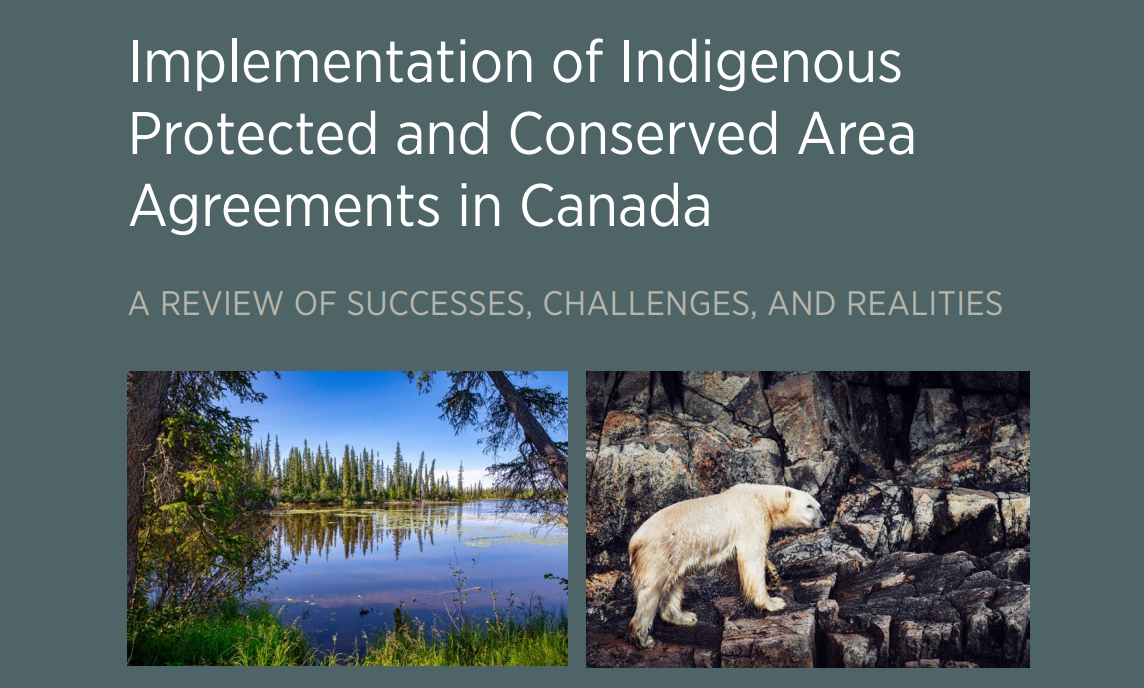A new research report from MakeWay and The Firelight Group sheds light on the experiences and perspectives of people involved in implementing Indigenous Protected and Conserved Area (IPCA) agreements in the North.
IPCAs are lands and waters managed either exclusively by Indigenous governments and organizations or in partnership with public governments. They protect Indigenous rights and critical landscapes, while also supporting the application of Indigenous laws, governance, and knowledge systems.
The momentum behind Indigenous-led conservation continues to grow in Canada. With guidance from the Indigenous Circle of Experts, the Government of Canada has made significant investments in Indigenous-led conservation in the last five years to meet its goal to protect 30% of land and waters by 2030. This financial support has spurred proposals from Indigenous communities; The Narwhal reported that, as of December 2022, there are 500,000 square kilometres of proposed IPCAs across the country.
Years are often spent at the negotiating table trying to get conservation projects off the ground; however, negotiating IPCA agreements is just the start—the most exciting and, sometimes, challenging work comes after, when Indigenous governments and organizations begin implementing their agreements on the land. But there are not a lot of resources available to assist Indigenous groups in this process. This is why MakeWay and The Firelight Group teamed up to gather learnings from people who are currently implementing conservation agreements.
Researchers interviewed representatives from five different IPCAs in the North and hosted a two-day workshop to discuss and verify findings. Representatives of Indigenous, Crown, and neutral parties participated in the research. We had wide-ranging conversations about the roles needed to carry out the work; the time and financial costs; and supports needed for long-term management.
Here are a few of the things we learned:
1. Implementing a conservation agreement requires dedicated staff.
Indigenous conservation projects can span huge areas. For example, Edéhzhíe National Wildlife Area, in the Dehcho region of the Northwest Territories, is 14,218 square kilometers—over twice the size of Banff National Park! Implementing conservation agreements requires staff dedicated to administrative, planning, policy and on-the-land work in Indigenous governments and organizations and in public governments.
2. Projects need consistent, flexible, and long-term funding.
Hiring and retaining staff requires a significant operating budget. One of the primary challenges that research participants described is a lack of consistent, flexible, and long-term funding for implementing their agreements. One participant from Qikiqtani Inuit Association said, “We’ve hired forty people, so if the funding stops, we’ll be stuck. Not only will people lose employment, but this program that took so much work and time to build would be demolished.” Some participants struggled to keep the momentum going and faced financial barriers to expanding their programs or capacity.
3. IPCAs must uplift Indigenous authority.
IPCA representatives stressed that while IPCA agreements operate within the colonial legal system, IPCAs must be rooted in Indigenous values, knowledge, and laws. Public governments must acknowledge the Indigenous government or organization’s authority; in co-management scenarios, Indigenous people connected to the land should always have the dominant voice in decision-making.
By sharing these and other lessons from the North, MakeWay hopes this new report will support other Indigenous governments and organizations embarking on their own IPCA journeys. In the words of a research participant from Łutsël K’é Dene First Nation: “At the end of the day, remember the messages you got from your elders and keep doing what you do no matter how hard it gets.”
Download “Implementation of Indigenous Protected and Conserved Area Agreements in Canada: A Review of the Successes, Challenges, and Realities” today. An Inuktitut version is forthcoming.
MakeWay and The Firelight Group hosted a webinar to discuss the report’s findings. Watch the recording below:
